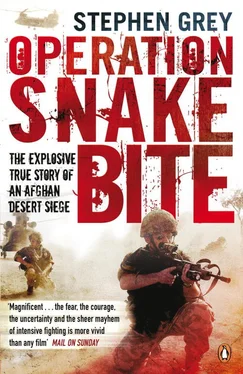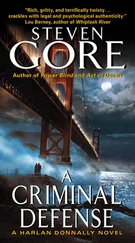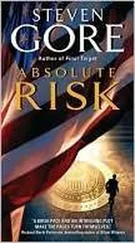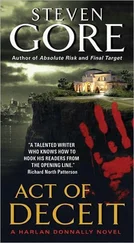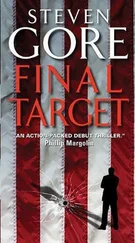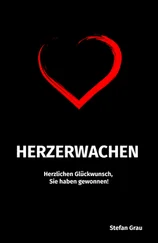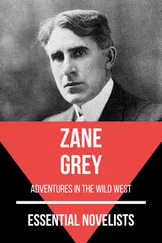All of these men – Jake included – had some close old friends from the Green Howards who were not there that night. They were part of other companies. But they would all soon be out together in OMLT teams in Helmand. All would play a crucial part in the events that followed.
It was Jonno who had organized that night, spending hours sourcing venues and striking deals with landlords around Blackpool. They had begun in the Eagle & Child, a pub in the village of Weeton, halfway between Blackpool and Preston and just by the 2 Yorks’ new home. The regiment had moved up to the barracks some two months ago from their previous home in Chepstow, Gwent.
Jonno had overestimated the wine requirement, and at dinner early in the evening the company was faced with a veritable wine lake to consume, which they did with gusto. They moved on in hired mini-buses, singing Middlesbrough FC songs, a few bouts of ‘There’s only one Jake Little!’, and the first verse of the Green Howards regimental song, ‘The Bonnie English Rose’.
Old England’s emblem is the Rose
There is no other flower
Hath half the graces that adorn
This beauty of the bower
And England’s daughters are as fair
As any bud that blows…
By the time they reached Blackpool, a few were the worse for wear – particularly Jonno and Jimmy Lynas and Andy Breach, a lieutenant who was to get the rank of acting captain on the tour. A tall twenty-six-year-old, Breach had been trained as an accountant but ditched that career to join the army. He had been in about three years by now and would act as a senior platoon commander for Jake.
One man who was stone-cold sober that night was Jake’s second in command, Captain Nick Mantell. Nicknamed ‘the Boy’ for his youthful looks, Mantell was the son of a legendary Green Howard and former SAS officer and, like Breach, had been in the army for three years. They had been in training together, in fact, although Mantell got promoted faster because he was a graduate. That night Mantell was getting grief as he was unable to drink because he had an early flight to catch.
The men trawled through a few bars. At one rather empty club, Lynas jumped up and performed a pole dance. Between water holes they lined up to get a photo taken. The first passer-by could not work the camera.
‘That civvie is broke. Get me another one!’ ordered Jake.
That was before they settled at the Walkabout, where the little discussion with the bouncers occurred.
Although the behaviour was ‘slightly undesirable’, as Jake put it, it did show how well bonded the team already was. This was very much their final blowout before departure.
Jake ordered the company to disperse and to reform at a nightclub. ‘That’s how we were. The lads were ready for a fight, but Jake ruled us all. We were gelled as a unit,’ recalled Lynas. And the evening ended peacefully.
It had been a jovial night, concentrated mainly on getting the beers in. For the next six months, any alcohol, they knew, would be strictly forbidden. And then, as they were soldiers in a dangerous profession, there was always that extra feeling in the back of their minds. They knew what Afghanistan was like. They knew that perhaps this might be the last drink and their last real word with someone who might not return.
‘Quite a few of the lads were slightly apprehensive,’ remembered Jake later, ‘but all seemed to be excited about the tour. I think I spoke to everybody that night over countless beers, and my overriding memory was how happy they all were. We had a strong and close team, and that bred confidence amongst them. You know the training had been so intense that we all just wanted to get on with it.’
Jake woke up the next morning on Blackpool beach.
Headquarters, International Security and Assistance Force (ISAF), Kabul, late September
The phone rang on the desk of Dan McNeill, the commander of the International Security Assistance Force of NATO in Afghanistan. ‘The president is on the line,’ said his assistant.
President Hamid Karzai was like that. Never reluctant to pick up the phone himself but sometimes hard to reach when you wanted him. No one seemed to know his mobile number, and there wasn’t a switchboard at the palace. For days you might speak to him constantly, and then for a while he would just disappear.
The president’s tones were hushed, as if he were trying to be conspiratorial. A Taliban commander from the sensitive Helmand town of Musa Qala was ready for betrayal. He had come to see Karzai in the quiet of the night and told him, ‘I want to come over to your side.’ Karzai was playing all mysterious. ‘I can’t tell you his name for now,’ he said. But he was clearly excited. This could be a turning point, just what both men had been waiting for. The Taliban commander had left Kabul, but he would be coming back.
Ever since the British had retreated from Musa Qala a year back, the town had been a source of controversy. They had made a ‘truce’ with the town’s elders for them to keep the town peaceful. Most Americans thought it was a thinly disguised deal with the Taliban. On 2 February, two days before McNeill had taken command in Kabul, the Taliban had rolled back into the town. McNeill got his spokesman to promise his forces would return.
‘We will take it back but in a manner and timing of our choosing,’ said Mark Laity, a NATO press officer. ‘It’s not a question of if, but when.’
McNeill had wanted to act immediately. He suggested to Karzai that a mission be organized to recapture the place. He had enough forces. Karzai had said ‘not yet’. Everything about Musa Qala spelled trouble, and Karzai was unwilling to gamble his credibility on a new venture there. He wanted to go on working with the elders. With hindsight, McNeill wondered if it had been a mistake to ask him. Perhaps McNeill should have just gone ahead. But once he had popped the question, and the president had declined, it meant he had become stuck. It would have been a gross affront to go ahead now without Karzai’s explicit backing.
Now, McNeill gently put the question again. Was now the time to take some action? To start planning for the town’s recapture? But Karzai said no. ‘Don’t do anything for now.’ By McNeill’s tally – and he was keeping a note – that was the fifth time that Karzai had turned him down on Musa Qala.
In the big military scheme of things, a town like Musa Qala hardly seemed important. And yet it was. The war was not just about adding up the number of towns you held or the strength of the enemy. It was about winning the psychological advantage. The name Musa Qala translated literally meant the ‘Fort of Moses’, and it was becoming as important as the name sounded.
Musa Qala was like a sore wound that was festering. Leaving the Taliban there meant a constant reminder of the fault-lines that lay embedded between Britain and America. It gave the impression of NATO impotence, was a symbol of Taliban alternative government and also gave the Taliban a secure base inside the country from where they could stage operations across the south. And it had a central role in the opium trade. For McNeill, a lot came down to opium. Follow the money. He could not understand why the Brits did not quite get it. It wasn’t an accident that Helmand was both the world’s capital of heroin production and the most volatile region of the country.
Mention an operation to take back Musa Qala to the Brits, McNeill knew, and they would start to get all nervous. They had been so damn keen on their agreement with the tribes that had covered their withdrawal from the town the previous October. They had tried so hard to sell its virtues: in such a defensive way that it seemed pretty obvious they hardly believed their own words. When the agreement was made – by the then governor of Helmand, Daoud, and indirectly by the British under the then commander, Brigadier Ed Butler – it was portrayed as a deal with the elders of the town. But every indication the Americans had was that it was really an agreement with the Taliban itself. And it was negotiated from a position of weakness.
Читать дальше
